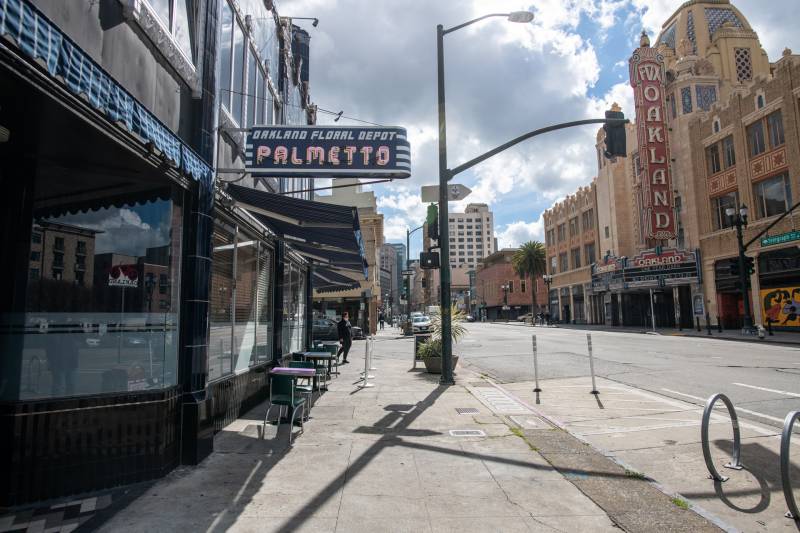A key premise of the basic income experiments is to let residents use the payments however they see fit, bucking the post-welfare reform trend of placing requirements or restrictions around government aid.
The city initially asked exclusively for applicants of color, however, its website now states all residents who meet the program’s criteria are welcome to apply, regardless of race.
District 6 City Councilmember Loren Taylor, whose district serves East Oakland, said the city will start outreach on Saturday into the one-block radius of East Oakland initially being targeted by the demonstration project, in partnership with 200 nonprofit organizations that are helping to get the word out.
Taylor said some 9,000 people have already subscribed to the email list to be notified when applications become available.
”We’ve got a lot of work ahead of ourselves over the next 22 days as we get as many of the eligible families as possible to complete the applications for phase one,” Taylor said. “Our focused outreach is to focus on the roughly one square mile between Havenscourt to 94th Avenue and between International and MacArthur Boulevard.”
The program is one of several guaranteed income programs throughout the Bay Area. Santa Clara began one a year ago, and Marin began one last month. Others in San Francisco are also underway.
In Stockton, which completed its program in February of last year, initial results showed that families who got the stipends were more likely to get jobs, be able to afford child care, and the cash helped them cover unexpected expenses with most of it being spent on basic necessities.
Oakland’s program doesn’t quite meet the threshold of a true “universal” basic income program, the program’s operators said. UBI, as opposed to guaranteed income, is meant to go to everyone and provide enough of a payment to cover all basic needs. By contrast, a guaranteed income is meant to provide an income floor but not meant to be a replacement for wages, and can also be targeted to those who most need it, according to Oakland’s guaranteed basic income website.
Treva Reid, District 7 councilmember also serving East Oakland, said the Oakland neighborhood is disproportionately impacted by economic inequities, and that the weight of “multiple pandemics and systemic challenges” has only further harmed many of the residents.
“For many of our low-income residents in East Oakland, an additional $500 means having much-needed money to maintain their housing, to pay their rent, to pay for child care, to secure resources that not only will help economically support their families,” Reid said, adding that the program could help stabilize these families to prevent them from being pushed out of Oakland.
KQED’s Guy Marzorati contributed to this story.

